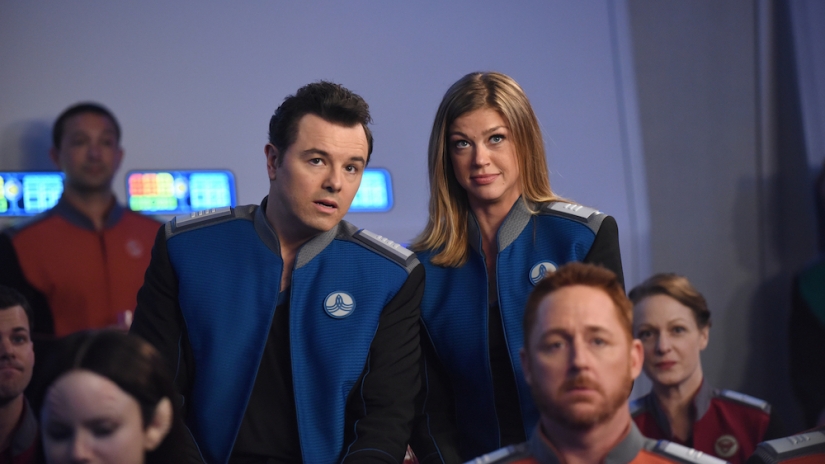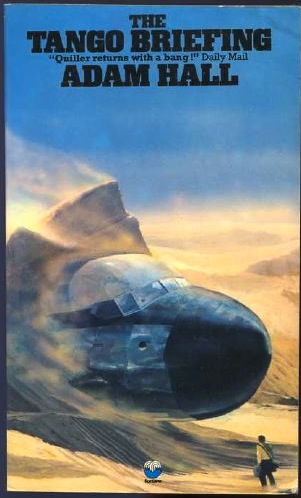I felt slightly violated when I first read about, and saw still images from a new science-fiction TV programme called The Orville. It looked unbelievably derivative of The Next Generation-era Star Trek.
Then a couple of days ago I read a positive review of it, and I discovered that I have the first episode free with Amazon Prime. So I watched it, last night.
I was right. It is blatantly a Star Trek rip off – so much so though that I realised that this was actually the whole point. It’s an homage.
In this first episode I noticed, for example: a holodeck. A “starship” explicitly referred to as such. A shuttle craft. The starships have warp drive, and although it’s called “quantum drive”, they do the same flash of light BOOM! when the ship goes to warp.
The layout of the ship’s bridge is pretty much the same as any Federation vessel, with two helm officers sitting in front of the Captain’s chair, and a view-screen in front of them. The doors hiss open in exactly the same way. The overall styling is also very reminiscent of TNG and Voyager, especially in the clothing and decor.
The CGI is entirely adequate. It’s about the same standard as Star Trek: Voyager, which considering that series is over 20 years old now is not saying a lot. But it’s definitely good enough. Perhaps I’m misremembering that anyway.
Some of the characters seem a bit thin or even pointless so far, particularly the conniving First Lady from the first couple of series of 24 (Penny Johnson Jerald) – who’s a physician in this one. But perhaps they’ll be fleshed out.
It doesn’t have any of the tradition and gravitas of course of the Star Trek franchise, but the approach is different. They’re doing something different here. It’s played for laughs. It’s pretty much a comedy, to the point where the story is more or less a vehicle for the gags. It reminded me of the old Star Trek spoof movie with Sigourney Weaver and Alan Rickman, Galaxy Quest.
What I’ve seen so far (trailers mainly) of the new, official franchise TV series Star Trek: Discovery does not appeal to me very much so far. It looks rather dark. It doesn’t really seem to have the spirit of any of the old Star Trek TV series.
And neither, for different reasons, does The Orville. But it does at least seem to be a lot more fun. I really liked the first episode and will be giving the rest of the first series a go.
UPDATE: I watched the second episode, and hugely enjoyed it. I love what they’ve done with the Star Trek idea in this series. It doesn’t have the drama, or the emotion, or – if it’s not too grandiose a way to put it – the philosophy of the decades-old franchise on which it is based. But it does have wit, charm and humour in abundance. And it’s done with great affection.



